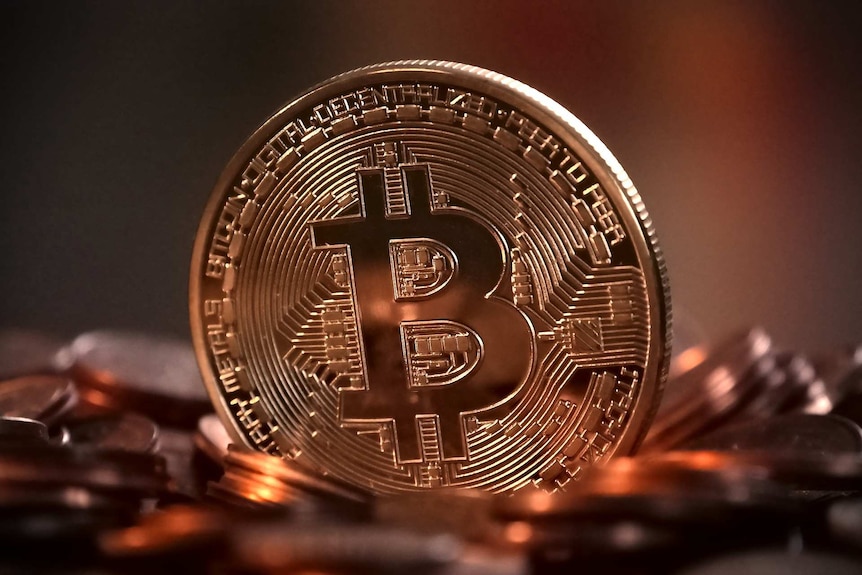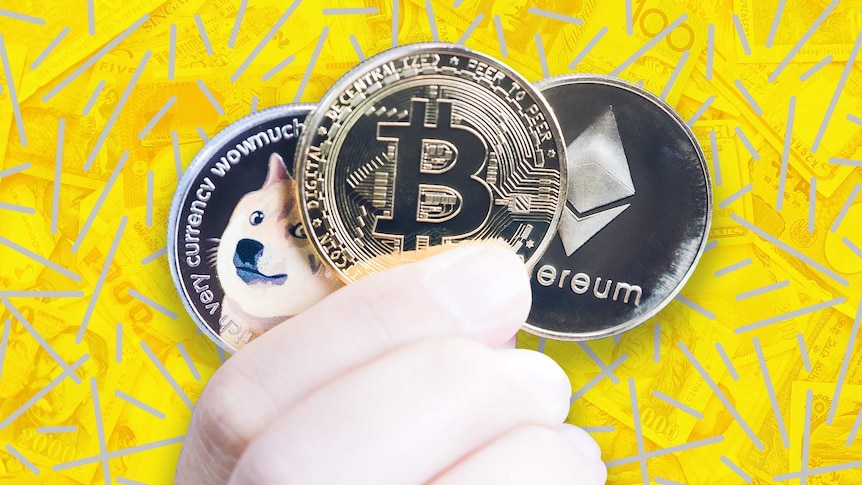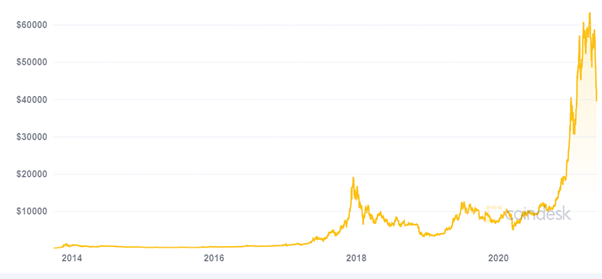- Joined
- Jun 9, 2020
- Messages
- 1,264
- Points
- 113
BTC price is down?!!! Shit!
hope you are doing ok with your coin investments. I can't stomach the volatility. but fun to watch. just hoping no one gets too badly hurt.
BTC price is down?!!! Shit!
BTC price is down?!!! Shit!
Small investment, hence only an ikan bilis. Just hodling, just like stocks. Long term perspective. Diamond hands all the way!!!hope you are doing ok with your coin investments. I can't stomach the volatility. but fun to watch. just hoping no one gets too badly hurt.

Safer way is to bury our rupiahs. I have mine buried under a few trees around my block in Toa Payoh.K L N
Moral of the bulls sai.:
Be like me.
Keep all my Rupiahs in biscuit tins below my bed.
Safer way is to bury our rupiahs. I have mine buried under a few trees around my block in Toa Payoh.
What goes up must come down, so what comes down must also come up. Haha
Except NOL, Chartered, SPH...and soon SIA
er... I am averse to bitcoin physicals. Maybe btc futures?BTC is on sale now. Buy, buy, buy. 10X within the next few years.
BS lah... fake one.


yes. It's happened before, it will happen again. Except this time, it's not just Holland. It's the world and there are deeper pockets and fake news and social media pumpers. Expect a longer wait with more false crashes.Bitcoin and tulips have a lot in common. Will their investors share the same fate?
Posted 9h
So, what do tulips have to do with Bitcoin? A lot, as it turns out.( Supplied: Pixabay )
The price of Bitcoin has collapsed, yet again, just like this time last year.
Those who got in on the ground floor years ago have made a killing. Those who got in last year after the crash and exited shortly after Elon Musk took the plunge in February have joined the ranks of the uber-rich.
And for all the criticism about its volatility, instability and environmental irresponsibility, we probably haven't seen the last Bitcoin rally.
But before we get around to considering that question, let's just back-track a little.
Well, maybe just a little more than a little. Let's go all the way back to 1637 to Holland, then one of the most powerful nations in Europe.
The history of currency.
That was the year that tulip mania finally ran out of puff, the year when one of the most insane investment bubbles of all time burst spectacularly. And yes, we're talking about tulips, the flowers.
Originally from Turkey, they became highly fashionable in the early part of the 1600s, sought after by the well-to-do and, ultimately, a symbol of wealth and power deemed an absolute necessity for anyone with social pretensions or ambitions.
By 1634, demand for tulip bulbs – which not only were rare but fragile – was such that the trade crowded out most other Dutch industries. At its peak, a single tulip bulb cost six times the average income, with some going for as much as $1 million in today's money. They were traded on stock exchanges in Amsterdam, Rotterdam and other Dutch cities.
Three years later, it all came to a crashing halt. A large swathe of the population had borrowed to buy bulbs, certain that prices would only ever go higher, and when the market turned, it did so with a vengeance as investors were forced to dump their, um, flowers.
If this sounds too ridiculous to be true, you're right. But it really did happen.
Bitcoin in US Dollars. Source: Coindesk
So, what do tulips have to do with Bitcoin?
A lot, as it turns out.
Economics is really a study of human behaviour at both an individual and a group level and there are a couple of fundamental laws, or assumptions, used as the bedrock.
One is that individuals always act rationally. The other is that everyone always acts in their own best interest.
That explains why economists have such a dismal track record in forecasting anything. Not sure about you, but your correspondent's behaviour occasionally has veered towards the irrational and certainly not in anyone's best interest. Multiply that several billion times and you have a recipe for unconstrained lunacy.
Tesla CEO Elon Musk suspends the use of bitcoin to purchase vehicles.
It's why we have booms and busts, prosperity and poverty, wars and famine, why we lurch from one extreme to the other. You can't just assume it all away and pretend it's not there.
Which brings us to Bitcoin and the mysterious world of cryptocurrencies.
Bitcoin is just one of more than 4,000 cryptocurrencies. The unifying feature of almost all of them is that they employ what's known as blockchain technology – a record-keeping or ledger system – to conduct transactions. While it is a complex system, it relies on a simple idea: to ensure stored data is public and cannot be manipulated or controlled by any party, state or individual.
Blockchain technology has huge potential for almost every facet of a data-dependent world, from conducting elections to healthcare to financial services. The Australian Securities Exchange uses it for its transactions.
While Bitcoin was among the first to use the technology, it doesn't own it. That's something many Bitcoin investors don't get. They're quick to extol the virtues of blockchain but don't understand that Bitcoin is just one of many thousands of organisations that employ it.
Not only that, there are as many different variations and applications of the technology as there are users. The technology can be customised, depending on how you want to use it. And Bitcoin's blockchain has quite a few deficiencies.
The original … but not the best
When it was launched in 2009, Bitcoin devotees declared the decentralised ledger system would render the global financial system obsolete. Central banks would have no place in the world and Bitcoin would replace national or fiat currencies.
That hasn't happened. Ironically, more than a decade down the track, Bitcoin remains priced in US dollars, the world's reserve currency, and investors continue to measure their wealth in good old dollars and cents. In an even greater insult, central banks, including the Reserve Bank of Australia, are actively pursuing their own forms of digital currencies.
And while Bitcoin remains the poster child, and by far the biggest cryptocurrency, it has spawned legions of imitators, some of which hold far more promise than the original.
Elon Musk, the Tesla car founder who splurged $US1.5 billion ($1.9 billion) on Bitcoin in February, now concedes the currency uses far too much electricity. It's an environmental disaster in the making so he's now plugging Dogecoin, the joke currency based upon a dog.
What few investors will admit, however, is that Bitcoin is slow and hugely expensive to use. That's not just compared to other digital currencies. It's way more expensive than conventional transaction methods.
Among its rivals, Ethereum, the second-biggest network, is often touted as the system that eventually will dominate. But its transaction fees are horrendous as well. It operates a little like Uber, with surge pricing.
Last weekend, for instance, if you'd gone out to lunch on Saturday and spent $120 and then tried to pay with Ether, you would have been hit with a $385 transaction fee.
But who needs to use these systems when you can create your own blockchain and cryptocurrency? Binance, a major exchange, runs off the Ethereum network and offers others the chance to piggyback its system.
The high environmental cost of mining cryptocurrency, video streaming and sending emails.
That has attracted some unusual traffic. Blockchain transactions may be public but the identity of those behind them can be obscured. That's why authorities have been concerned about nefarious activity such as drug trafficking, money laundering and terrorism financing.
Among the many new currencies is one to facilitate online pornography subscriptions, the aptly titled Cumrocket. And like most fields of human endeavour, there's no escaping toilet humour. PooCoin launched last month along with a stern warning from UK authorities about the potential risks of investing in it. Or stepping in it.
One of the few operations that seems to have a real business model, along with executives, employees and actual offices, is XRP, the currency launched by Ripple Labs. It is aiming to compete or replace the SWIFT international payments transfer system used by most banks. It is quick and cheap.
Perhaps because of that visibility, it has become the subject of a lawsuit by America's Security and Exchange Commission, which has charged it and two executives with selling $US1.3 billion in unregistered securities.
Interestingly, SWIFT is fighting back. It is attempting to compete with Ripple's blockchain technology with a rival technology, Global Payments Innovation.
Do I buy or what?
Bitcoin is a bubble. Last Wednesday, it went through some wild gyrations, dropping 33 per cent before surging by a similar amount to end the session down 8 per cent.
From the outset, it was designed to become increasingly rare.
Only 21 million coins exist. Most already have been released and the final one won't be mined until next century. That was a deliberate attempt to make its value rise, along the same lines as gold, so that it could become a safe harbour, a store of wealth when things turn ugly.
While its value has risen exponentially in recent years, its incredible volatility makes it anything but a safe harbour. Given it isn't much good for transactions and holds no proprietary technology or intellectual property, about the only thing it is good for is speculation.
On Friday, it was bouncing around more than 10 per cent every few hours, ending another 9 per cent lower, and at $US39,000 was well below the $US63,346 peak last month. That makes it a bargain, some reckon.
Maybe. But remember, it's a virtual commodity. It doesn't actually exist. No-one even really knows whether Satoshi Nakamoto, the mythical founder, is real.
Who knows, it could go beyond $US100,000 sometime in the near future. But if everyone suddenly decides to abide by the rules of economics and starts acting rationally, be prepared to lose everything.
At least you can tiptoe through tulips.
YoutubeTiny Tim: Tiptoe through the Tulips
Posted 9h
hey! welcome back.We live in strange times, even GME and AMC is up when it should not be
Have an exit strategy
not tasty wan...What is Bite coin? Can eat anot?
